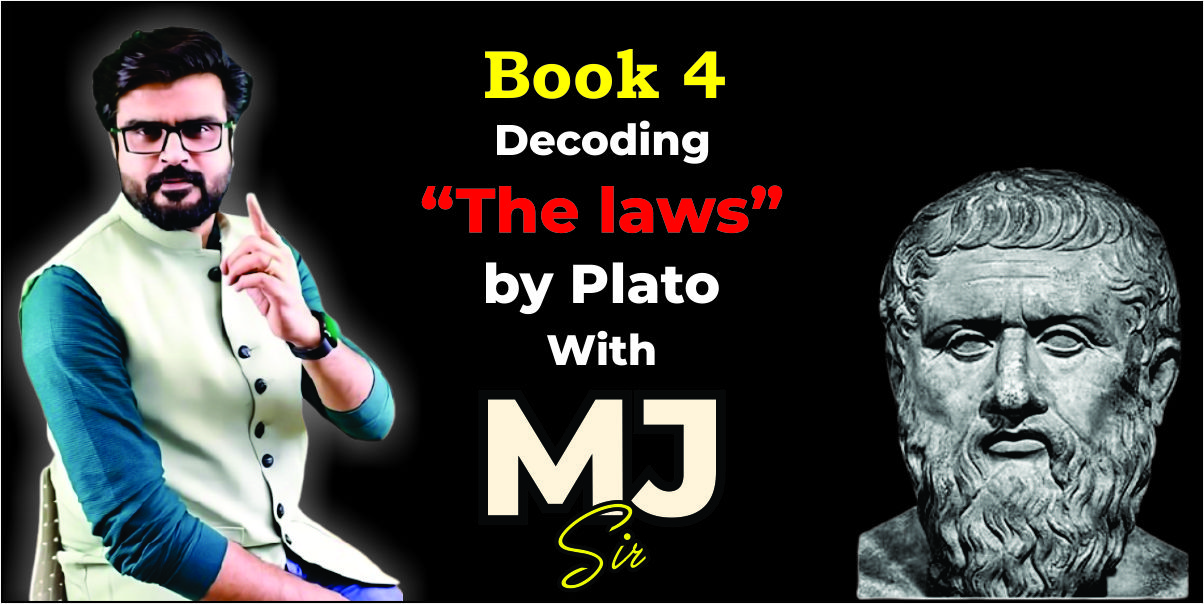-
 21 June 2025
21 June 2025 -
 Posted By Vidhik Shiksha
Posted By Vidhik Shiksha -
 Under English, Plato
Under English, Plato
|| Decoding “The Laws” by Plato With MJ Sir || Book – 4
“Laws” : Book 4
Intro : “If you were to build a new state from scratch…
Where would you begin?
Army?
Capital?
Economy?
Plato says none of these.
You begin by shaping the soul of the citizens.
In Book 4, Plato lays the foundation of his ideal state from within.”
Key Themes of Book 4:
1. The Birth of a New State – “Magnesia”
Cleinias announces a plan to establish a new colony Plato turns this into a political experiment called “Magnesia”. This becomes a conceptual laboratory where Plato applies his ideas to a real-world governance model.
2. Ideal Size and Population
Plato argues: “The state must be neither too large, nor too small just enough to preserve order, unity, and justice.” He proposes a population of 5040 households, a number chosen for its mathematical divisibility, which aids taxation, administration, and military organization.
3. Wealth Regulation and Property Distribution
Plato strongly opposes wealth inequality.
He proposes:
• Land should be equally distributed among citizens.
• No buying or selling of land.
• A legal minimum and maximum for wealth to ensure no one is too rich or too poor.
“Too much wealth breeds arrogance;
Too much poverty breeds rebellion.”
4. The Government System – A Mixed Constitution
Plato introduces the first clear model of political structure:
• Not full democracy
• Not full monarchy
But a mixed constitution where the rule of law is supreme.
“No one in the state shall be above the law.”
5. Education and Morality as the Core of the State
Plato repeats this principle emphatically: “The soul of the state lies in its system of education.” Education must aim not only at knowledge, but at moral development, self-discipline, and civic responsibility.
6. Role of Religion and Festivals
Plato affirms that:
• Religion and rituals must support moral order.
• Festivals are not just for fun —
they are public instruments of unity and ethical instruction. Cultural life must educate the emotions, not just entertain them.
Conclusion :
1. Plato lays the foundation for Magnesia, an ideal state built on law, virtue, and structured governance.
2. The strength of a state does not lie in military power, but in the inner quality of its citizens.
3. A mixed constitution, regulated wealth, and moral education this is Plato’s vision of a truly stable state.
That’s it from Book 4 for now……
Yours
✍MJ


 Helpline No.:
Helpline No.: 



















